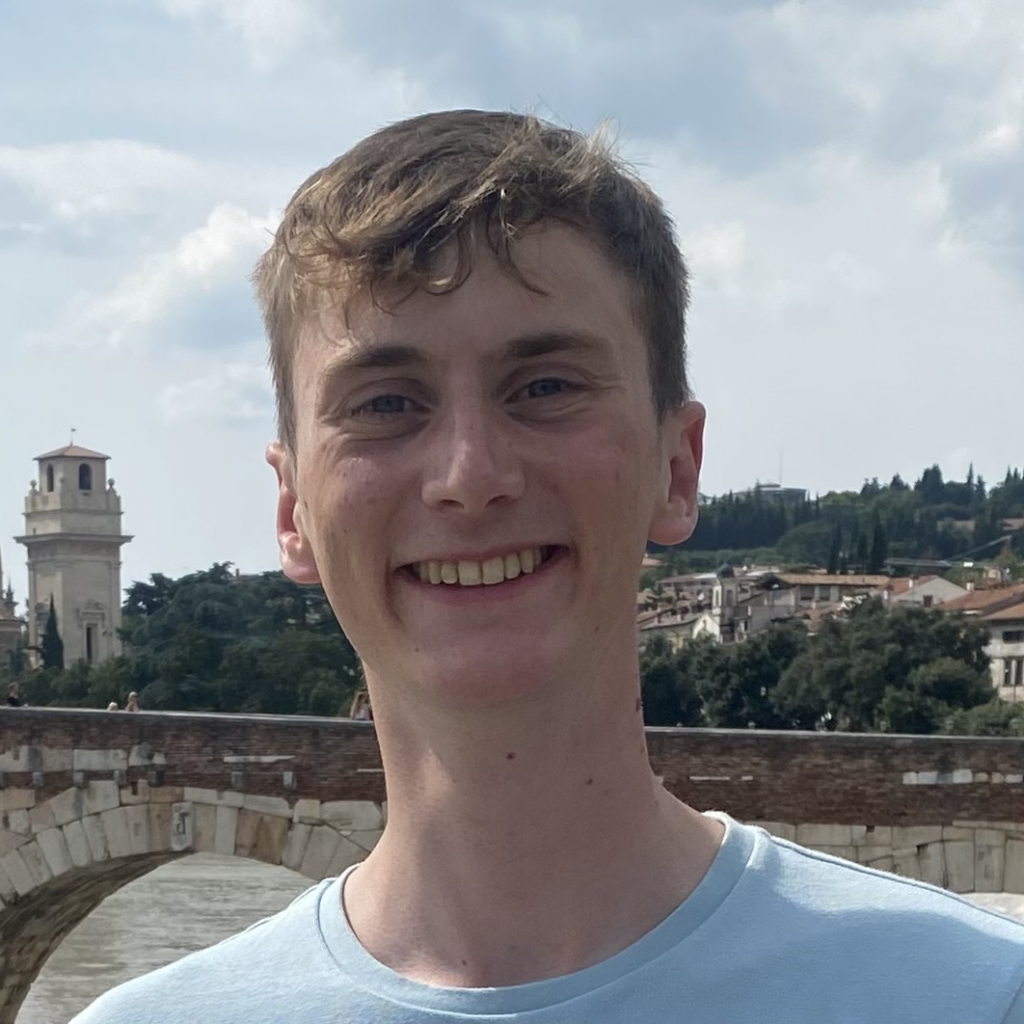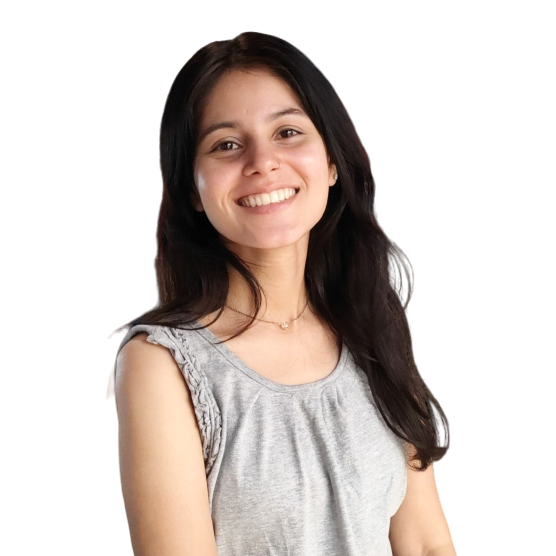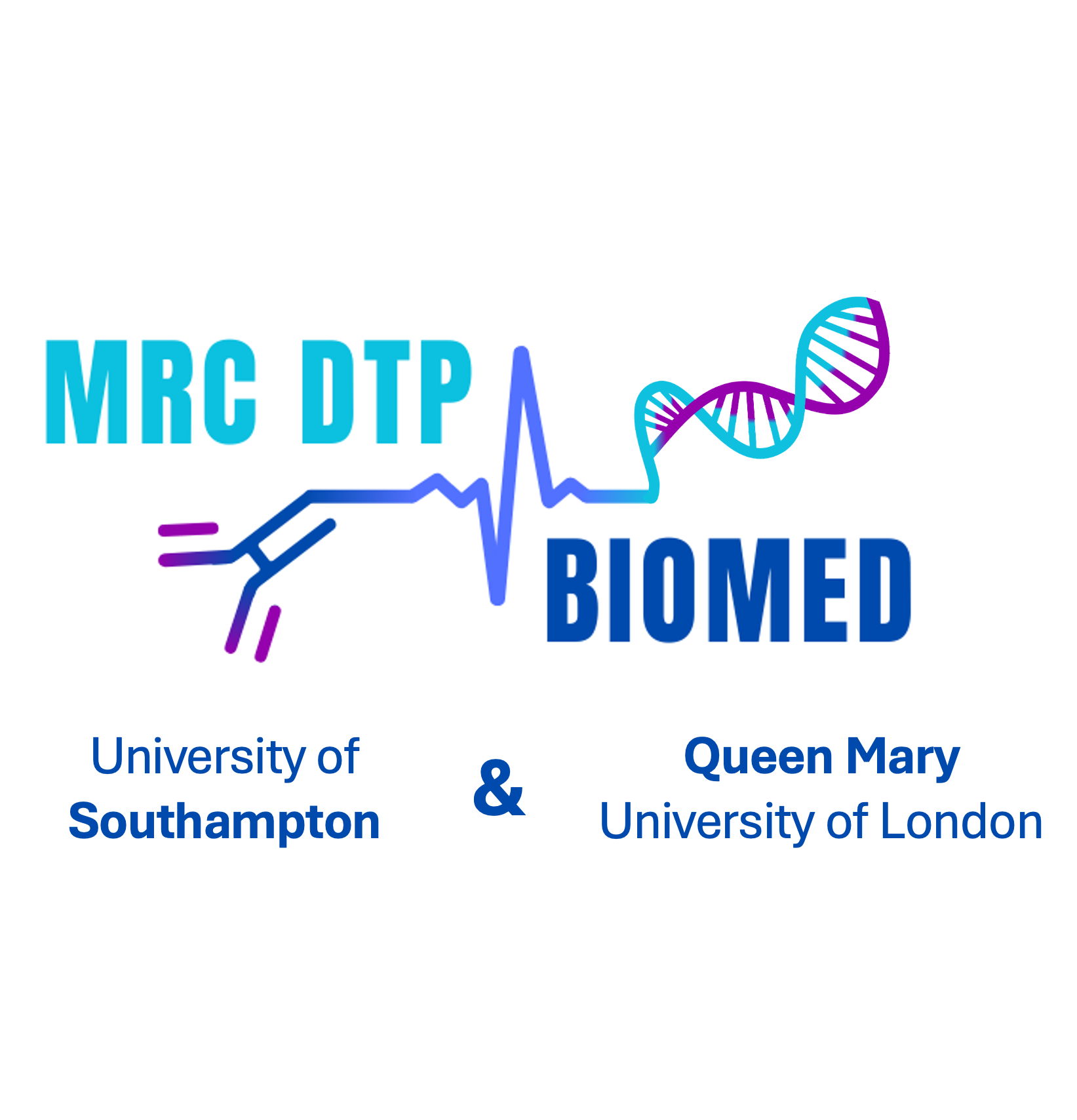
Neurological Diseases
Funded by the MRC DTP
Which rotation did you decide to pursue for your PhD project and why did you choose it? I decided to create a PhD project with my third rotation supervisor Professor Diego Gomez-Nicola and join the Neuroscience Research Group. My PhD looks to understand the role of environmental factors on microglia, the immune cells of the brain, and how this relationship may impact an individual’s chance of developing Alzheimer’s disease. I chose this project because it combines my scientific passions of Neuroscience and Immunology. In addition, Alzheimer’s Disease is the leading cause of dementia, a condition which affects one in every three people born in the UK today (Alzheimer’s Society, 2024) therefore I hope my project can translate to new public health guidance and provide more positive health outcomes.
What skills have you developed so far? I completed rotations in neuroscience and immunology, gaining experience in immunohistochemistry, flow cytometry, cell culture and bioinformatics. I have also had the opportunity to develop personal skills from critical analysis of papers to presenting my research in lab meetings and at the MRC DTP away day.
How have you found the mathematic/computational component of the DTP? Prior to the start of the course, I had no experience in computer programming, but with the emergence of genomic and transcriptomic techniques within the scientific literature I was eager to learn. The quantitative cell biology module (QCB) was a challenging but enjoyable module that provided me with the practical skills and understanding to confidently perform computational techniques. Subsequently, I chose to complete a computational project for my third rotation where I used R to analyse large-scale single nuclei RNA data.
What have you enjoyed most about your experience so far? What have you found challenging? At the start of the iPhD I was unsure what PhD area I wanted to pursue, thus being on the open project enabled me to experience a range of different labs and experimental approaches, acquire new techniques and skills, and build a network with other PhD candidates and academics. The most challenging part of the course so far has been balancing the modules and the lab projects. Sometimes the deadlines can be quite close to each other, meaning good organisational and time management skills are required.

Wolfson Institute of Populational Health
Funded by the MRC DTP
Which rotation did you decide to pursue for your PhD project and why did you choose it? I combined my second and third rotation projects to create a hybrid project for my PhD, titled Exploring the links between dementia and cardiovascular diseases: causal interference and early detection. I did this because I thoroughly enjoyed both projects and saw overlap and scope for collaboration. I also thought this way I can get the best of both worlds and benefit from the experience and expertise of both groups through linking dementia with cardiovascular diseases.
What skills have you developed so far? Before starting this programme, my research experience was solely lab-based, and it was important to me to explore what else is out there. Therefore, for two out of three of my rotations I chose dry lab computational projects to gain this new experience. I learned to use and manipulate high dimensional data, create models using machine learning techniques to identify the most relevant data points and deduce biological meaning from millions of numbers.
How have you found the mathematic/computational component of the DTP? Incredibly useful as I decided to ultimately pivot from lab-based research to computational-based research. This was an incredible opportunity for me to explore research outside of a lab, without any commitments to find out how I like it. I find this valuable as the world is shifting towards the use of artificial intelligence in all areas and I think understanding the basics of high-dimensional data analysis in biomedical research is crucial to keep up with research, even if you’d want to do work in a laboratory. Importantly, computational skills are highly transferrable and allow for future opportunities outside of biomedicine.
What have you enjoyed most about your experience so far? What have you found challenging? I enjoyed the rotational aspect of the programme the most. It allows to gain first-hand experience with supervisors and teams to make an educated decision of what fits best for your PhD. I also met many lovely people along the way. The most challenging aspect of the course was balancing full-time research commitments and dissertations with taught modules and coursework/exams. Especially in the first semester with weekly travels to Southampton for the quantitative biology course.

Cancer Immunology
Funded by CRUK and the Cancer Immunology Talent Fund
What is your PhD project? I will be working with Professor Edd James and Dr Emma Reeves to look at T cell activation in the tumour microenvironment, in particular how tumour, viral, and vaccine antigens are presented to the immune system. T cells specific for commensal and seasonal viruses, such as CMV, Influenza or even SARS-CoV-2, can often be found in human tumour samples, and appear to be capable of tumour cell killing, even while tumour-specific T cells are not. We aim to better understand how these “bystander” T cells behave in tumours, and if activating them as part of a cancer vaccine could improve antigen presentation, and boost patient immune responses to cancer. In essence, trying to use previous training of the immune system to kickstart cancer immunotherapies!
What skills have you developed so far? Through my rotation projects I have been able to learn a wide range of both wet lab and computational skills. My first rotation focussed on mammalian cell culture, using flow cytometry and western blots to examine the effects of an inhibitor drug in antigen presentation. My second rotation was purely bioinformatics, using single-cell RNAseq to look at the effects of radiotherapy on head and neck tumours. Finally, my third rotation involved microbiology and cloning to create and examine enzyme mutations found in cervical cancer. Through all of these projects, I have also been able to develop a lot of soft skills, including time-management and scientific communication.
How have you found the mathematic/computational component of the DTP? Learning a coding language was always on my to-do list in my undergrad degree, but I had never gotten the chance before the Southampton Quantitative Cell Biology module, which let me quickly get up to speed with coding in R. The lectures were very interesting and, in concert with my RNA sequencing rotation project, they inspired me to add a bioinformatics element to my PhD project proposal.
What have you enjoyed most about your experience so far? What have you found challenging? A great part of the programme so far has been meeting and speaking to colleagues across the Faculty of Medicine, who all have different research interests. There is such a variety of projects going on, which you get a window into through all the social events and conferences each year. I already had an idea of my research topic going into the programme, but the rotations let me explore a few of these labs, bringing inspiration and techniques back to boost my research plans. The biggest challenge for me has been balancing research and coursework throughout the year, but it definitely got easier by the end.

Cancer Immunology
Funded by CRUK and the Cancer Immunology Talent Fund
What is your PhD project? My PhD project focuses on investigating the association between crown like structures (CLS) and body composition parameters on the tumour-immune microenvironment in patients with high-risk early breast cancer. After completing my second and third rotation with Prof Stephen Beers, Dr Charles Birts and Dr Constantinos Savva, I decided to integrate the insights and methodologies from these two short projects into a more comprehensive research project. I will be mainly focusing on the association between CLS, which are macrophage aggregates surrounding dying hypertrophic adipocytes, and body composition parameters in patients from the CANDO-3 cohort who have been diagnosed with triple-negative and HER2+ breast cancer, and how they influence the disease progression and treatment outcomes. It is an exciting project as it encompasses a wide range of techniques, such as quantitative image analysis using multiplex immunohistochemistry and digital pathology, as well as bulk RNA sequencing and staining techniques. In addition to that, I will be developing 3D models to investigate the effects of metabolic interventions and immunotherapy on the tumor-immune landscape.
What skills have you developed so far? I decided to undertake my rotations in three different labs, which greatly helped me in developing a wide range of skills and provided a diverse research experience. My first two rotations were wet lab heavy, where I learned the basics of tissue culture, developed 3D breast cancer organoid and organotypic models, acquired hands-on experience with confocal microscopy, immunofluorescence, various staining techniques, and performed drug testing assays. In my third rotation I shifted my focus on digital image analysis, where I used Definiens software and various statistical tools to analyze tumour biopsies from the BeGIN cohort. This significantly helped me with my lab organization and time management skills. Additionally, the MRC-DTP away day, Faculty of Medicine conference, IfLS organoid symposium, and the weekly lab meetings enhanced my presentation and communication skills.
How have you found the mathematic/computational component of the DTP? I personally had no prior experience with bioinformatics or coding, so I initially struggled a bit. However, the week-long data carpentry workshop was incredibly helpful as it introduced us to the basics of R programming language. The Quantitative Cell Biology module was very useful as the lectures provided us with an in-depth theoretical understanding of RNA seq analysis. I thoroughly enjoyed the interactive practice sessions where we got to work on the actual dataset. As a result, my bioinformatic skills have significantly improved and I decided to incorporate a bioinformatics element into my research. Specifically, I will be using bulk RNA sequencing on the tumour core biopsies to identify differentially expressed genes and significantly altered signalling pathways. Additionally, the mathematics module was also extremely helpful as it introduced us to the fundamentals of SPSS and GraphPad Prism. As a researcher, having foundational understanding of bioinformatics and statistics is crucial for interpreting the results presented in scientific papers as well as analysing our own data.
What have you enjoyed most about your experience so far? What have you found challenging? I thoroughly enjoyed my rotation projects, which provided me the opportunity to work with three different lab groups. This experience allowed me to design a project perfectly suited to my interests and skills. Additionally, I met colleagues from different departments, and this helped me to build a network with some amazing people. The challenging part was definitely managing the modules, assignments, lab work, and report write-ups altogether, however this greatly improved my time management skills, teaching me how to efficiently organize and manage my responsibilities and deadlines.

